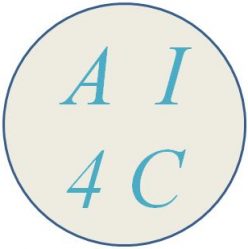Our next seminar will be held on Wensday the 5th of October 2022, at 14h30 ECT, -not on the 30th of September as previously advertised-, at the Pierre et Marie Curie campus of Sorbonne Université, in seminar room 105 of LiP6, located on the first floor of the corridor 25/26 (easier access through tower 26).
The seminar can also be followed remotely through zoom here:
https://cnrs.zoom.us/j/99096155743?pwd=ZmlNb3BYWGFRWE5lSnlBdjNRRDRGZz09
Password : n5jBHd
You can ask questions during and after the talk, in the slack channel.
Arthur Filoche’s talk is entitled:
« Variational data assimilation with deep prior »
Data Assimilation remains the operational choice when it comes to
forecast and estimate Earth’s dynamical systems, and proposes a large panel of methods to optimally combine a dynamical model and observations
allowing to predict, filter, or smooth system state trajectory.
The classical variational assimilation cost function is derived from
modelling errors prior with uncorrelated in times Gaussian distribution.
The optimization then relies on errors covariance matrices as
hyperparameters.
But such statistics can be hard to estimate particularly for background
and model errors. In this work, we propose to replace the Gaussian prior
with a deep convolutional prior circumventing the use of background
error covariances.
To do so, we reshape the optimization so that the initial condition to
be estimated is generated by a deep architecture. The neural network is
optimized on a single observational window, no learning is involved as
in a classical variational inversion.
The bias induced by the chosen architecture regularizes the proposed
solution with the convolution operators imposing locality.
From a computational perspective, control parameters have simply been
organized differently and are optimized using only the observational
loss function corresponding to a maximum-likelihood estimation.
We propose several experiments highlighting the regularizing effect of
deep convolutional prior. First, we show that such prior can replace
background regularization in a strong-constraints 4DVar using a shallow
water model. We extend the idea in a 3DVar set-up using spatio-temporal
convolutional architecture to interpolate sea surface satellite tracks
and obtain results on par with optimal interpolation with fine-tuned
background matrix. Finally, we give perspective toward applying the same
method in weak-constrained 4DVar removing the need for model-errors
covariances but still enforcing correlation in space and time of model
errors.
Biographic notice:
Arthur Filoche is a Ph.D. student at the LiP6 of Sorbonne Université in France, under the supervision of Dominique Béréziat, Julien Brajard, and Anastase Charantonis. His research interests lie in combining deep learning and data assimilation
